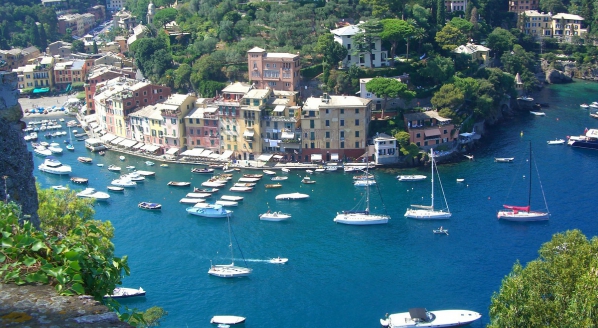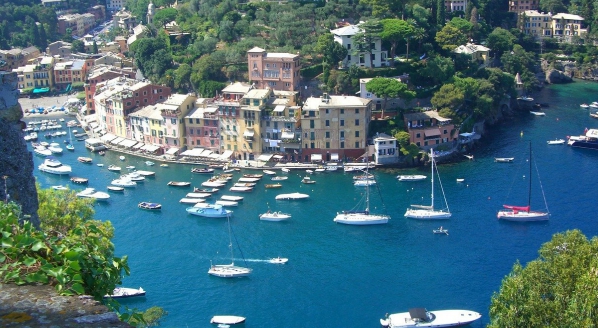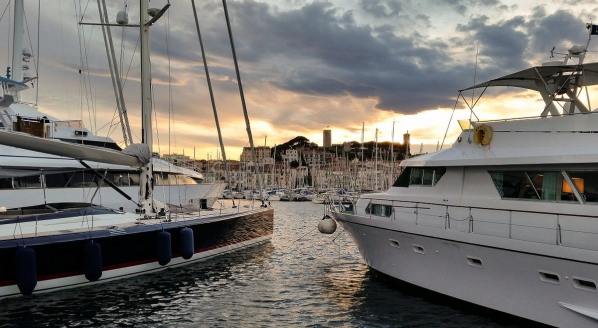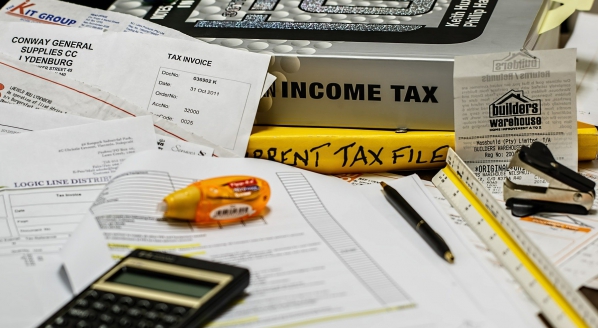“VAT Paid" - why this isn't a ‘thing’ for yachts
Richard Simm, Director - International Private Client PwC, provides a comprehensive summary of VAT and its application to our industry…
Yachting is a passion for many owners. However, I have yet to meet an owner who is passionate about the VAT status of their yacht, which is understandable.
Despite this, owners are increasingly waking up to the fact that they, or someone they trust, needs to know about VAT, or more importantly, about getting VAT right. Some recent experiences highlight how a lack of awareness could leave owners in a sticky situation.
In this article I will explain some key concepts that impact yachts and their VAT status, illustrated by a couple of case studies.
The first thing to know is that ‘VAT paid’ isn't actually a term recognised in EU VAT law. The second thing to appreciate is that even if VAT has in fact been paid, it can be demanded again - legitimately in certain circumstances. This has come as a shock to several yacht owners this past year.
The issue typically arises due to confusion within the superyacht industry on the core principles of how VAT works, the complex interaction between EU VAT law and the Customs Code, and the impact of yachts being operated commercially without fully understanding the first two.
In essence, a yacht is only free to sail in EU waters whilst it continues to meet one or other of a particular set of criteria for being in "free circulation" for VAT and customs purposes or meets a specific relief from these criteria. There are a limited number of ways this can be achieved and there are also certain ongoing conditions that must be followed in order to ensure this position is maintained.
Here are some examples:
Case study A - private yacht operated commercially
A yacht is acquired for use in the EU privately. The previous owner imported the yacht into the EU, paying VAT there, and used it in the EU ever since. However, part way through their ownership the yacht was chartered out to generate income. The new owner has now bought the yacht and is using it in the EU privately. Is the yacht in ‘free circulation’?
This is a relatively common pattern. However, the answer depends upon the actions taken by the previous owner. Importantly, the fact that VAT was paid by the first owner doesn't necessarily mean the new owner is also in ‘free circulation’ in the EU for VAT purposes.
This therefore needs looking at more closely. In most but not all circumstances, the VAT profile of an asset transfers from vendor to buyer. Therefore, the owner should be alive to the yacht's history in the EU. This is important both to understand what tax profile they are picking up, but also to identify if they actually have a situation where they won’t pick up the tax profile when they would have otherwise wanted to.
In this case, the previous owner had sailed to the Caribbean the year prior to the yacht being chartered, taking their ‘free circulation’ yacht out of the EU. The yacht returned to the Mediterranean with the express plan for it to be operated commercially for the season. This isn't necessarily an issue, but how the process is implemented certainly is. Here the yacht was brought back into the EU in Southern France to commence its first charter. The local agents saw a 'commercial' yacht and applied the French Reverse Charge. Again, there is nothing wrong with using the French Reverse Charge in the right circumstances, but in these specific set of circumstances it ended up causing an issue later down the line.
Nothing further was thought of this by the previous owner, and the yacht was then chartered out successfully, generating income. The previous owner then decided they wanted a larger yacht and to sell their existing one - enter the new owner who subsequently bought it for private use without paying any VAT, as the yacht was marketed as ‘VAT paid’. This is often used as a shorthand for the yacht being in ‘free circulation’ and being able to be used in the EU without restriction and without paying any further VAT.
Unfortunately, due to the operation of the yacht in the hands of the previous owner, and the form of its re-importation into the EU, the yacht was no longer in ‘free circulation’ for the purposes of private use.
Unknown to them, the new owner was at risk of facing a VAT demand from a French customs official should they board the yacht because the last touchpoint French customs had for the yacht was on importation as a commercial business asset. They therefore wanted to know how the same vessel was operating privately without VAT having been paid since.
The irony of this situation is that it never needed to have arisen. There are ways for private "free circulation" yachts to be used in a business without a loss of the original VAT status. However, considerable care needs to be taken at all points in the yacht's ownership, which requires joined up, multi-jurisdictional VAT expertise and coordinated implementation.
Case study B - the perils of inward processing relief and returned goods relief
The background: A Non-EU resident bought a yacht in the EU from an EU owner who acquired it from a EU shipyard, paying VAT at the time. They operated the yacht in the EU through their non-EU holding structure and non-EU flag registration. As the yacht was originally acquired from an EU shipyard, and VAT was paid on purchase, it has been legitimately in EU free circulation since.
The yacht was in need of a major refit and the new owner wanted to use a European yard. The shipyard said that because the yacht was non-EU owned and flagged, it should enter the yard under Inward Processing Relief (IPR). IPR can be a perfectly acceptable approach for non-EU owned yachts going into refit, but it is subject to certain conditions and is only suitable in certain circumstances.
IPR puts the yacht into a temporary ‘VAT and Customs Duty suspension’ - applicable for non-EU goods. To apply IPR the yacht was exported from the EU prior to sailing to the chosen EU shipyard. Following the works, the yacht was then sailed out of the EU shipyard under IPR and reimported into the EU via their chosen jurisdiction.
IPR is suitable in a number of circumstances, however the process wasn’t appropriate for this yacht, given its profile and existing free circulation status. The combination of the ‘full export’ undertaken by local agents prior to entry to the shipyard and the treatment of improvements under IPR, meant that upon re-entry to the EU the yacht was no longer considered to be in free circulation.
Luckily for the owner they still qualified for Temporary Admission due to their specific circumstances and so could indeed enter the EU to use the yacht privately without suffering VAT. However, if this had not been the case, their options would have been far more limited and costly. All of this means the yacht's marketability on resale has taken a hit as it can no longer be represented as being in ‘free circulation’ for private purposes or "VAT Paid" as is likely to have been the language used on the sales documentation.
Takeaways
#1 "VAT paid" is not a thing. Just because VAT has been paid historically this doesn't mean the yacht is always able to sail in the EU condition-free.
#2 One should undertake robust pre-purchase tax due diligence on any yacht, but particularly if the yacht is marketed as ‘VAT paid’. Does it really still have what is more accurately termed as ‘free circulation’ status?
#'3 Owners should ensure that their yacht has a robust procedure for the times it crosses an EU VAT/Customs border. Typically, this will be when going to the Caribbean or Middle/Far East, however it could also include going to Gibraltar, the Channel Islands, Montenegro and soon the UK.
#4 Do not apply a "Reverse Charge", IPR or any other importation mechanism without first obtaining advice on the interaction with the yacht's historic VAT treatment and the impact this could have.
N.B. Some details have been changed in the examples referred to here in order to preserve anonymity.
NEW: Sign up for SuperyachtNewsweek!
Get the latest weekly news, in-depth reports, intelligence, and strategic insights, delivered directly from The Superyacht Group's editors and market analysts.
Stay at the forefront of the superyacht industry with SuperyachtNewsweek
Click here to become part of The Superyacht Group community, and join us in our mission to make this industry accessible to all, and prosperous for the long-term. We are offering access to the superyacht industry’s most comprehensive and longstanding archive of business-critical information, as well as a comprehensive, real-time superyacht fleet database, for just £10 per month, because we are One Industry with One Mission. Sign up here.
Related news

Application of new Italian VAT system delayed
Italian authorities have delayed the application of a new VAT system on charters until November 2020
Business

One to One: Nic Arnold
The industry has come a long way in terms of its attitude towards taxation, but there is still a long way to go in terms of governance and structures
Business

Italian authorities provide details on VAT proofing
The Italian Tax Authority confirms the proof required on effective sailing outside the European Union
Business

SuperyachtNews COVID-19 Advisory - Making the best of 2020
How to use the yacht this summer to remain eligible for VAT exemptions next season
Business

SuperyachtNews COVID-19 Advisory – French VAT amendments cancelled
SOS announces that the 2020 amendments to French VAT law on charters have been cancelled
Business

Related news
Application of new Italian VAT system delayed
5 years ago
One to One: Nic Arnold
5 years ago
IR35 to be delayed due to COVID-19
6 years ago
The changing face of commercial yachting
6 years ago
IR35: are you prepared?
6 years ago
NEW: Sign up for
SuperyachtNewsweek!
Get the latest weekly news, in-depth reports, intelligence, and strategic insights, delivered directly from The Superyacht Group's editors and market analysts.
Stay at the forefront of the superyacht industry with SuperyachtNewsweek



